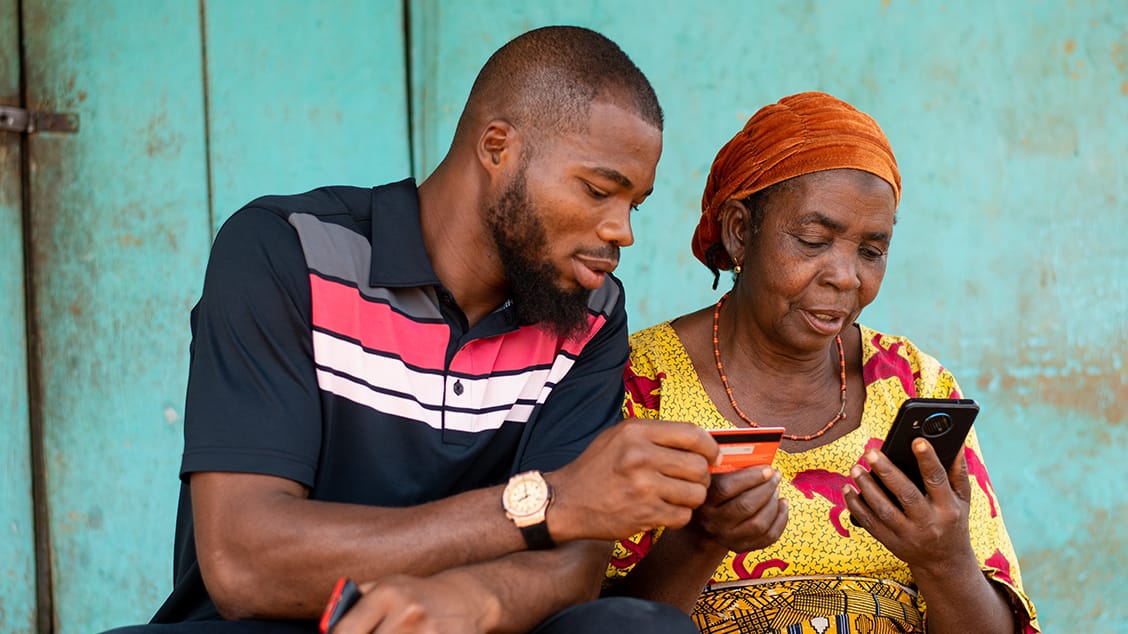At the recent annual meeting of the IMF and the World Bank in Marrakesh, Morocco, Global Finance organized a roundtable with the representatives of four African financial institutions, two commercial banks and two development banks.
The discussion focused on the African economy and its banking system, both in terms of priorities and challenges, the growth of innovation and local fintech solutions. The recent exit of some foreign banks from the Continent, and the expansion of some strong local and regional banks into new territories were at the center of the conversation, as were the prospects for consolidation in the sector.
Global Finance: Let’s talk about the agenda for the African banking sector. What are the priorities and challenges?
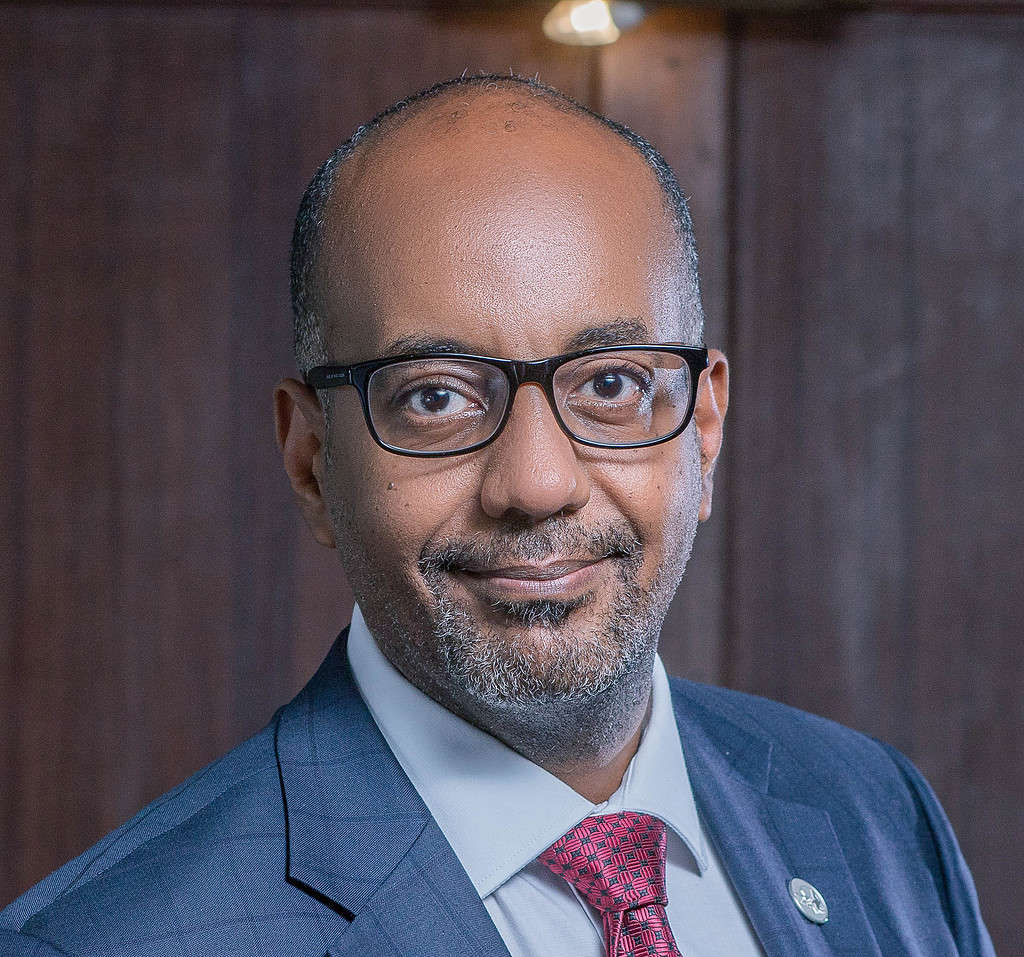
managing director and chairman of the TDB Group
Executive Management Board CEO of TDB from 2012 to 2022, Tadesse previously served as executive
vice president at the Development Bank of
Southern Africa in South Africa. He also sits on
the governing bodies of the International
Development Finance Club, Finance in Common and the Africa Investment Forum.
Admassu Tadesse: African banking has been through quite a journey over the past couple of decades. It has strengthened. Now, the economies that underpin all the banks are going through new rounds of stress, and we really don’t know how far this new macroeconomic framework is going to last. African banks are exposed in the same way American banks have found themselves exposed, depending on the mismatch you might have in your books. I think the good thing is African supervisory regimes have really improved—regulators are more robust today than before. We’ve found very prudent responses being taken by most African countries over the past few years to deal with the shocks. And it’s a matter of recapitalizing those banks that need to shore up their capital, and it’s not just straight equity. It’s also hybrid capital, guarantees. So, I think financial institutions really reflect the wider economic climate.
Aliou Maïga: Since 2014-2015, there have been a series of global crises that have really impacted the continent. African economies were adversely impacted, including the financial sector. Banks had to first prioritize consolidating their risk management to ensure that their operations remained sound, and second, help maintain economic activity and support recovery. But due to ongoing crises—the war in Eastern Europe, volatile commodity prices—it is difficult to predict the path to recovery. Going forward, our hope is that the financial sector will support the development agenda, foster economic growth and value chains, create jobs and facilitate adaptation to climate change.
GF: Marc-Alexandre, your experience is of a commercial bank in Mauritius. For you, what are the priorities of the African banking sector at the moment?
Marc-Alexandre Masnin: AfrAsia Bank was founded 16 years ago with the core mission of bridging Asia and Africa. We have clients in 160 jurisdictions and most of them are located in Africa. According to McKinsey, the net banking product worldwide is about $1.4 trillion, with the majority originating from Western countries and a smaller share from Asia. Africa contributes relatively little to this total although it accounts for 20% of the world’s population. This means we can expect new cash flows coming from this continent in the future, and second, if expectations regarding GDP growth materialize [Africa’s GDP is forecast to rise tenfold by 2050], the banking sector is poised for significant development. This is why we see great opportunities in developing proper value-added solutions for wealth management, asset management and investment banking. That being said, we do see some challenges and difficulties. One of them is the need to find the right talent as we expand our range of banking services. Secondly, there is a lot of catching up to do. We need larger players to emerge through merger and acquisitions to be able to offer a wider range of services.
Heba Abdel Latif: Africa is the continent that is most vulnerable to climate risk, so yes, we have great potential for GDP growth. But how will you make sure it is sustainable? When we did our first green bond, we had to change our DNA at the institutional level. Our senior management is now extremely aware of climate issues. We’ve also changed the way we assess the risks. The second thing is, African banks are growing much faster than banks in developed financial markets. They’re actually quite robust, and for us it is very important to get the credit to the small and midsize businesses because that is really the engine of growth. We are betting on digitalization—finding arrangements with fintechs and telcos. The third thing that is very important is, how do you educate people about financial services? About investing in things other than real estate or gold?
GF: Recently we have seen a massive exodus of foreign banks, and local ones stepping in. How has the weight of African banks changed? Do we expect African giants to emerge?
Abdel Latif: In the late 1990s, we could take uncovered project finance debt from international banks for Egyptian projects 12-15 years in US dollars. We cannot do that anymore. So, I think the role of export credit agencies is really vital if we are to get the financing for the capex requirements of clients. What is really heartening for me is to see, for example, South Africa’s Standard Bank opening a representative office in Egypt, because so far pan-African banks were not putting Egypt into their regional strategies. But at the same time, I think if we are to follow the South African model, we need to have deeper capital markets, deeper ability to fund our requirements and do our projects in a more insular world where capital, except for climate finance, may not be so easily available.
Masnin: Most European and US banks decided to exit from local markets, creating opportunities for locally based banks. Traditionally, rich African clients used to consider Monaco, Switzerland or Luxembourg as the right places to manage their wealth from. However, the landscape has evolved, and these jurisdictions are now less inclined to serve African wealth, prompting clients to consider alternative options. Among these alternatives, Dubai and Singapore stand out as major financial centers outside of Europe and the US. Additionally, Mauritius emerges as a compelling choice. Mauritius boasts investment-grade status, no exchange controls, it’s on the whitelist of the OECD and the FATF. On top of that, it has a longstanding track record of 30 years as a jurisdiction for financial services, supported by mature regulations.
Tadesse: It’s not just a recent phenomenon. It actually started several years ago, long before you had the more systemic megatrend that is happening now. It’s like the coin that has two faces: There’s one face of the coin that will clearly point to opportunity because it means obviously there’s less competition, but then the flip side of that same coin is you’ll have economies that will have much less service and much less efficiency. It cuts two ways. I think if you’re a bank like us—investment-grade rated with access to global finance, although not as easily as before—you have a lot more demand and you’re in a better market position. But for the African continent as a whole, the problem is you have much less service and you have much less financing.
GF: Does the exit of some of the foreign banks open more room for local banks? Are there countries that will suffer because of these exits, or is just a readjustment?
Tadesse: At an aggregate level, Africa has always been underserved. We’ve never had enough service, not enough financial intermediation. I think you will start to see banks coming in from the Gulf Cooperation Council [GCC]. Moroccan banks have already got quite a footprint in West Africa and are making their way across the rest of Africa. I think the usual suspects from Asia will bolden up and come to close the gap. Chinese and Indian banks also will pick up. I mean, infrastructure had its run; now the financial institution space has a lot of openings and it’s actually a very attractive segment to step into the African economy. It’s hard to imagine that people will just walk away from a continent that is on its way to doubling and tripling in size, both in terms of population and GDP.
Maïga: Let’s go back in history. Most of our countries were colonized, so the first banks were colonial banks in terms of their ownership, which catered to a small population and corporates from Europe. This was the case until the early 1990s. Part of banking is to service corporates. But really the bulk of it is consumer business is SMEs and households, and you can’t run consumer business from a distance. You have to be close to the clients. So, I would say there are a few areas that I would look at in terms of the movement of large foreign groups outside of Africa. The most obvious one is correspondent banking, which will remain in Europe mostly because it is by definition international. For corporate banking, I think it will either remain with foreign banks or a combination of foreign and local lenders, depending on the company. Retail, however, will remain a domestic business. Banks like Nigerian banks that were created in the early 2000s have now become dominant players because they understand the region much better.
Abdel Latif: It ultimately forces the domestic and pan-African banks to really change their business model. And if we don’t rise to the challenge of educating people to mobilize and save, but also develop domestic capital markets to be able to mobilize the wealth in Africa to fund Africa, then these exits leave a big gap, right?
Maïga: True, African banks don’t have the capital to finance very large projects.
GF: Should we expect more consolidation in Africa’s banking sector?
Maïga: I anticipate that strong banks will expand their geographical footprint and strengthen their expertise across corporate, SME banking and retail banking. We may also see more consolidation among banks, but this is harder to predict. At a country level, governments or regulators may decide to change the capital requirements for banks, which will then drive consolidation like we saw in Nigeria in the mid-2000s.
Abdel Latif: I expect to see consolidation. Because if we are very honest about it, why have a lot of the European banks left? Because the deteriorating credit risk of Africa has made them feel that they cannot afford to have the capital tied in. So given all the crises that are happening, there will definitely be an issue with capital adequacy, and I think this will force some consolidation.
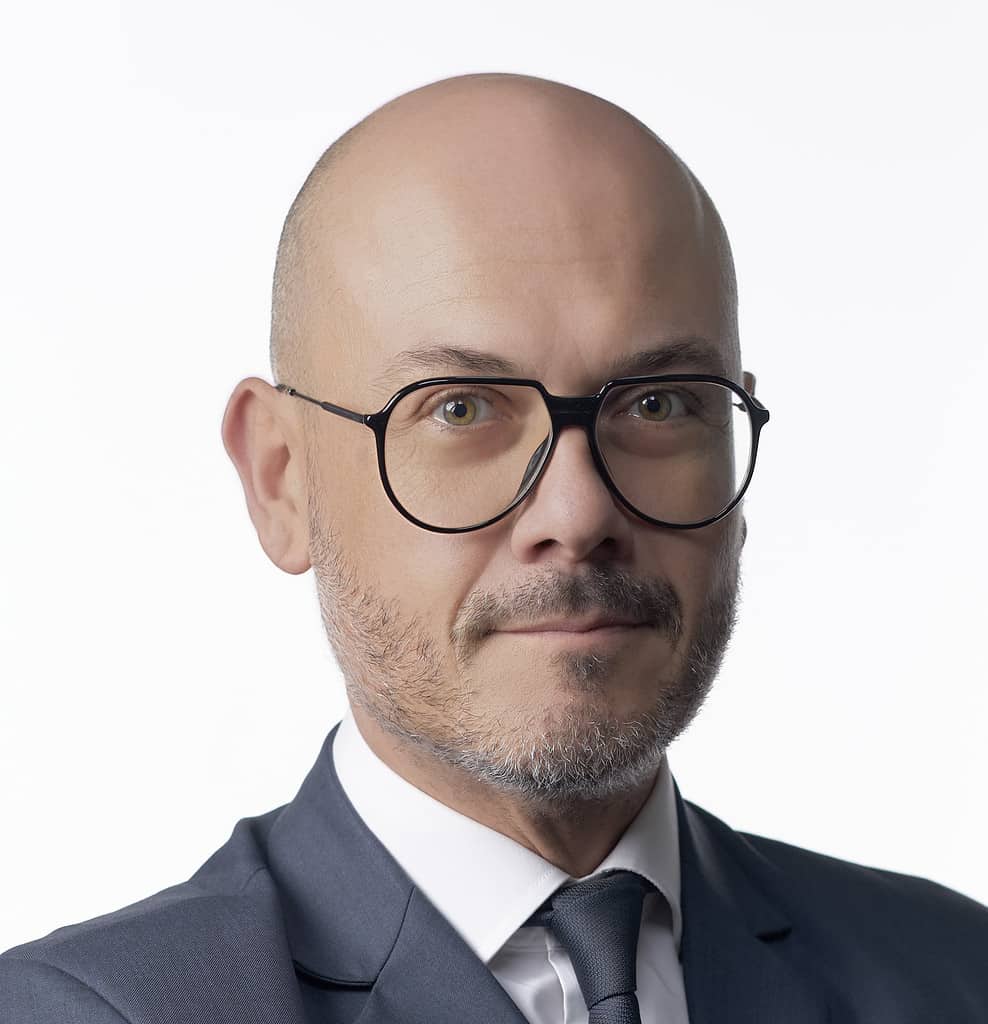
Solutions at AfrAsia Bank Responsible for leading securities services, wealth management and
advisory, and the external asset manager
desk at AfrAsia Bank. Prior to joining AfrAsia Bank in 2020, Masnin worked with French banks including
Société Générale and various international asset management firms.
GF: Moving on to innovation, what are the products or services with the biggest growth potential, and how do we foster innovation?
Masnin: Africa has one of the lowest levels of bank penetration worldwide. Paradoxically, the financial sector is highly digitized, with approximately 70% of transactions conducted through various digital apps. In terms of innovation in the retail sector, significant strides have been made, particularly in addressing day-to-day needs. However, there is still room for the development of advanced tools for high-value clients who seek digital investment solutions, brokerage platforms and wealth management apps. Such offerings are relatively hard to find among African banks, representing a crucial area for improvement. Innovation is very important, but so is human contact. Our clients demonstrate this need; they value having a proper, human, relationship manager available at all times. Mobile applications are great, but at one point you also want to talk to someone.
Abdel Latif: Looking at Africa, I see a very strong entrepreneurial spirit—a lot of startups, fintechs and entities that are spurring innovation in the banking sector. I agree that we don’t yet have platforms for wealth management or brokerage, but the biggest chunk of the population doesn’t understand what a bond is or that they should invest in shares. So, I think there’s a lot that needs to be done from an education perspective first. Also, African banks generally have quite a high cost-to-income ratio, so a lot of innovation is going toward digitizing processes—getting rid of paper, streamlining trade finance and corporate payments.
Maïga: When you talk about finance, people think you are talking about credit, but actually in Africa we are referring to the exchange of cash. That’s why you have seen the emergence of so many fintech companies and telcos offering payment services. With regards to credit, things haven’t really changed. Additional innovation is required to bring down the cost of servicing particular areas of the economy and also derisking them to a point where banks can finance them profitably. One area that we are pushing a lot at IFC is agrifinance—specifically, companies that can assess and evaluate farms to a level where they can be eligible for financing from banks based on scoring criteria. This has the potential to completely change the reach and the scale of financing in Africa.
Tadesse: It’s no longer just mobile money and mobile banking. It’s all these payment systems that are coming online and how some of those will start interconnecting with infrastructure. You’ll be able to have renewable energy solutions like minigrids that will be tied up with fintechs. I think there will be very interesting developments on small-scale solutions. Historically, scale was everything, but now technology has changed everything. New business models are emerging.
GF: Are the banks investing directly in fintechs? What is the relationship?
Abdel Latif: We have a private equity team investing in fintechs, but we also do collaborations. As a commercial bank, it’s not always easy to invest directly because of regulations, so there is a lot of collaboration, support at seed stage, training. We have also invested in data analytics to be able to work out the patterns to fund retail and small businesses in a simpler and more straightforward way.
Masnin: In our case, we are doing partnerships with existing solutions. We need to be efficient, and actually the advantage of entering the scene a bit later is that these solutions have already been developed and thoroughly tested.
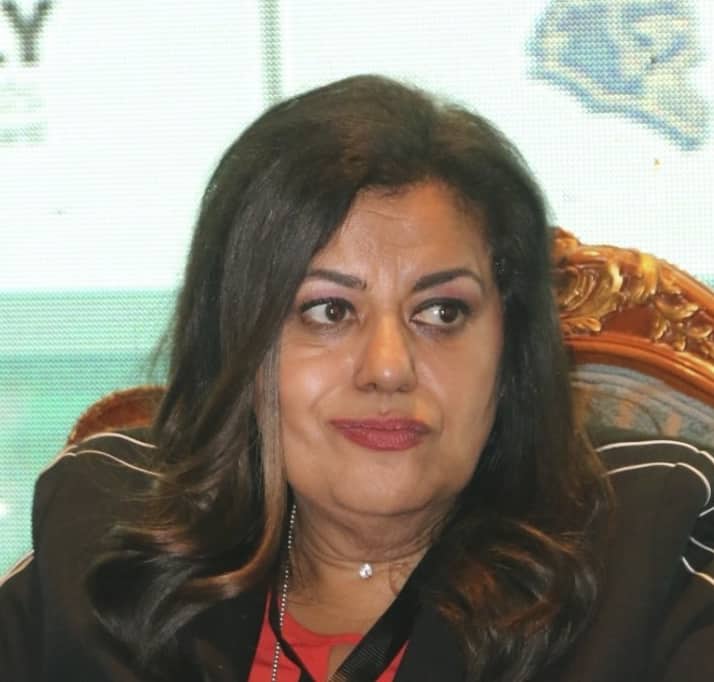
GF: In terms of capital markets, what is missing? Where do African companies list? Are local markets relevant?
Abdel Latif: In Egypt, the balance sheet of local banks is very liquid. So it’s easy for Egyptian corporates to borrow at cheap rates, and ultimately there is no need to resort to the bond market. We don’t have a lot of international investors in the market either, partially because of the emerging frontier rating. Rates tend to be volatile; we don’t have an established yield curve, so that makes it extremely hard to price longer duration. Also, the bond market is not very liquid in Egypt because ultimately the banks are the investors. Disintermediation of the banks has not yet happened in Africa, and I think it needs to happen for capital markets to be available to support economic growth. There are huge opportunities, but nobody has really capitalized on it yet.
Masnin: With the exception of the Johannesburg Stock Exchange, most exchanges across Africa are relatively weak. Even in Mauritius, liquidity is scarce, and available funds are driven toward government issuances due to their perceived safety. The lack of diversified sources of financing is a big issue for most countries. On a positive note, one of our competitors successfully issued a bond on the London market, indicating there is appetite. But we need to promote Africa.
Tadesse: The one other megatrend that’s really beginning to come through is a more diversified approach to financing. There seems to be willingness now to do more local currency financing, including in terms of international trade. We are beginning to see very interesting offerings coming through. We are collaborating with the World Bank to expand local-currency financing solutions to some of the infrastructure needs for African economies. Of course, local capital markets are not deep enough—I had to get a special waiver from a country where I tried to raise $25 million, which was the largest single local-currency bond ever issued in that economy. So, as much as we are moving toward local currencies, there will still be constraints in the smaller economies. But in South Africa, we’ve seen a tremendous story of very strong local currency solutions has been, and I think some of the bigger countries, like Egypt and Nigeria, will start to pick up steam in that direction.
Maïga: Capital markets reflect the economy. Today, many African capital markets are developing, but the lack of incentives for corporates to go public and list on the stock exchange as well as the high costs of transactions are a challenge. Many countries need to review the costs associated with issuing bonds if they want to make it work. Right now, capital markets are mainly used to issue government bonds, but I anticipate this situation will change because there is a lot of capacity being built in the financial sector. Many African companies are now big enough to float shares. And due to limited access to international markets, African countries will have to reduce the cost of companies going to the capital markets, which will unlock opportunities for domestic stock exchanges.
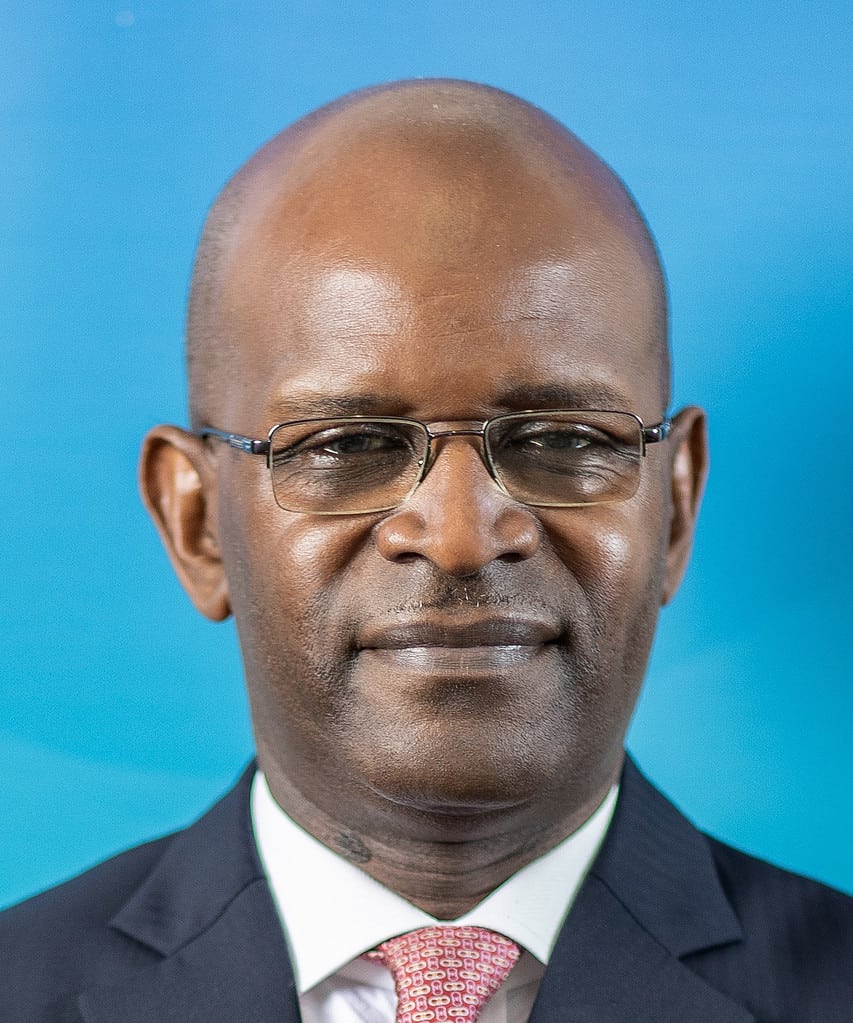
transactions and portfolio oversight. Maïga also leads the advisory teams and works with the World Bank on sector policy reforms to develop new opportunities and markets.
Abdel Latif: Also, to develop domestic capital markets that actually meet the financing needs of corporates, you need to move much higher up on the value chain in terms of manufacturing and industrial. That’s because there are huge capex requirements in these markets that are completely being sourced from overseas, and for that you need the currency. So, you need to build up your export capability together with building your manufacturing base.
GF: Moving to climate financing, how are you tackling this issue?
Maïga: Climate change has become a significant focus for IFC, to the extent that it’s now part of our DNA. We leverage the resources provided by donors and also tap into our knowledge base to assist countries in developing regulations and frameworks for climate financing. We work with banks to transfer knowledge that will enable them to build their climate financing capabilities and also provide funding. A great example of our work is our partnership with CIB—which started at the country level with the central bank—to develop a green taxonomy. We then worked with the bank to enhance its capacity in climate risk management and climate financing. This collaboration resulted in IFC financing the first green bond in 2021, and more recently we have added a $250 million facility to support their climate initiatives.
Abdel Latif: I think banks are liquid enough to fund climate finance requirements. But it’s more a question of incentivizing clients in terms of grants and incentives in terms of the government saying, we will subsidize interest with a tax break for green practices, or a tax cost for pollution. It’s very difficult to move without that.
Masnin: There is the big picture, and the small steps at ground level. You need countries to subsidize the transition in order to make significant progress. At the banking level, we are already offering green loans for initiatives such as hybrid cars and solar panels, providing borrowers with reduced interest rates. At the continent level, you have plenty of private equity firms supporting climate projects, but banks are not really getting involved.
Abdel Latif: As a commercial banker, mitigation projects are not hard to fund because there is a business case—you have the cash flows, you have the means to repay the debt, you do your analysis and you fund. It’s the adaptation projects we’re struggling with because those generally don’t generate a return that is financeable in a classic banking way.
Maïga: I think blended finance is really important, especially for climate investments. If you think of it, banks operate by utilizing leveraged capital. You can give a $100 million loan to a government for a project or give the same amount to leverage five times to $500 million. The potential for impact then increases significantly. In this case, the losses incurred are typically not as high as initially anticipated.
Tadesse: Capital markets are only developed appreciably in a handful of countries, so as long as ordinary finance is still very embryonic, so is climate financing. I think the most exciting part will be the innovations on the carbon credit side, which will naturally involve international partners and foreign investors. But it will be a little bit different this time because it’s not going to be debt driven. I think there’s going to be some very interesting developments around swaps—debt for nature swaps, debt for social swaps, debt for agriculture swaps—which will help reduce the debt burden a little bit in some African economies and have some of the benefits of the spinoffs being allocated to specific development sectors. It’s very early days but it’s now coming to Africa. Gabon was one of the first beneficiaries and is doing excellent work. It’s not yet really addressing the question of domestic capital or African capital rising up to the climate finance agenda, but it’s a growing industry.
